
Recent Blog Posts
How Are Witnesses Used in a Personal Injury Claim?
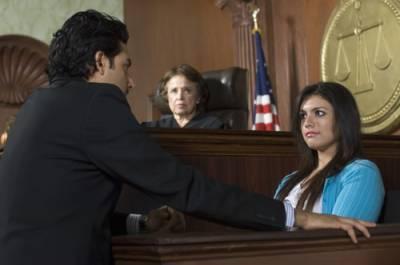 Personal injury claims are used to pursue compensation for injuries caused by another party’s wrongful, reckless, or negligent actions. There are four main components to a successful personal injury claim. You and your attorney will need to show that you were owed a duty of care by the defendant, the defendant breached the duty, your injuries were caused by the defendant’s breach of duty, and you sustained damages. To prove each of these elements, you and your attorney may use a variety of techniques and resources. One of these resources is testimony from witnesses. Read on to learn about the different types of witnesses that may be involved in your personal injury claim and how they may help you demonstrate the elements needed to win your case.
Personal injury claims are used to pursue compensation for injuries caused by another party’s wrongful, reckless, or negligent actions. There are four main components to a successful personal injury claim. You and your attorney will need to show that you were owed a duty of care by the defendant, the defendant breached the duty, your injuries were caused by the defendant’s breach of duty, and you sustained damages. To prove each of these elements, you and your attorney may use a variety of techniques and resources. One of these resources is testimony from witnesses. Read on to learn about the different types of witnesses that may be involved in your personal injury claim and how they may help you demonstrate the elements needed to win your case.
Eyewitnesses to the Accident
Incident witnesses or lay witnesses are people who witness your accident happen. They may be used to confirm the series of events that took place and explain what happened from their perspective. Whether your injuries were caused in a car accident, slip and fall accident, dog attack, or another type of accident, eyewitness statements may be used to corroborate your testimony. Your lawyer can help you locate and obtain testimony from eyewitnesses.
Liability for Injuries Caused by Snow and Ice in Illinois
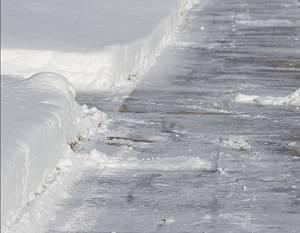 Intense winter weather is just around the corner in Illinois and that means that the potential for snow and ice-related injuries will be increasing significantly. If you or a loved one are injured in a slip and fall accident caused by snow or ice, you may wonder what the laws are regarding liability for snow and ice injuries. Are property owners legally required to remove snow and ice from their walkways and parking lots? Can residential property owners be held liable for failure to remove snow and ice? Understanding Illinois laws regarding liability for snow and ice injuries is key to knowing your rights after an injury caused by ice or snow.
Intense winter weather is just around the corner in Illinois and that means that the potential for snow and ice-related injuries will be increasing significantly. If you or a loved one are injured in a slip and fall accident caused by snow or ice, you may wonder what the laws are regarding liability for snow and ice injuries. Are property owners legally required to remove snow and ice from their walkways and parking lots? Can residential property owners be held liable for failure to remove snow and ice? Understanding Illinois laws regarding liability for snow and ice injuries is key to knowing your rights after an injury caused by ice or snow.
Unnatural Accumulation of Snow and Ice
Illinois property owners cannot be expected to keep their properties completely free of snow and ice. It is simply impossible to keep up with harsh Illinois winters in this way. However, property owners are responsible for preventing avoidable injuries caused by “unnatural accumulation” of snow or ice. Put another way, property owners are not automatically liable for every injury caused by the accumulation of snow or ice. If a person’s injury is caused by snow or ice that naturally accumulated in an area because of the weather, the property may avoid liability. However, if the snow or ice accumulates unnaturally, the property owner may be liable for injuries caused by the unnatural accumulation. For example, a property owner may be liable for injuries caused by:
4 Common Forms of Elder Abuse in Nursing Homes
 Nursing homes should be places of refuge for elderly and disabled individuals. Residents deserve to receive appropriate medical care and be treated with respect and dignity. Sadly, many nursing home residents are victims of abuse and neglect. The abuse may come from staff, visitors to the facility, or even other residents. If you have a loved one in a nursing home or assisted care facility, it is important to learn about the signs of nursing home abuse.
Nursing homes should be places of refuge for elderly and disabled individuals. Residents deserve to receive appropriate medical care and be treated with respect and dignity. Sadly, many nursing home residents are victims of abuse and neglect. The abuse may come from staff, visitors to the facility, or even other residents. If you have a loved one in a nursing home or assisted care facility, it is important to learn about the signs of nursing home abuse.
Psychological Abuse
Some studies consider psychological abuse or emotional abuse to be the most common form of elder abuse in nursing homes. In one sad example, a 91-year-old Chicago nursing home resident was teased and taunted by staff. The staff filmed a video of themselves bullying the vulnerable woman and uploaded it to a social media app. Psychological abuse may take the form of threats, intimidation, bullying, or humiliation.
What Types of Compensation Are Available in a Personal Injury Claim Involving Catastrophic Injuries?
 When a person is injured because of the reckless, negligent, or malicious actions of another party, the injured person has a right to bring a legal action against the at-fault party. Through a personal injury claim, the injured person may be awarded financial compensation or “damages” for their losses. Catastrophic injuries are injuries that dramatically impact a person’s life or result in permanent disability. Cases involving catastrophic injuries often result in much higher settlements and awards than cases involving injuries that are less severe.
When a person is injured because of the reckless, negligent, or malicious actions of another party, the injured person has a right to bring a legal action against the at-fault party. Through a personal injury claim, the injured person may be awarded financial compensation or “damages” for their losses. Catastrophic injuries are injuries that dramatically impact a person’s life or result in permanent disability. Cases involving catastrophic injuries often result in much higher settlements and awards than cases involving injuries that are less severe.
Catastrophic Injuries Significantly Affect a Victim’s Life
Traumatic brain injuries, spine injuries, severe burns, vital organ injuries, amputation injuries, and other catastrophic injuries have a profound impact on the victim’s life. If you or a loved one suffered a life-changing injury in a car accident, slip and fall accident, work accident, or other incident, you may be curious about your legal options. The injuries may have created an overwhelming financial burden on you and your family. Fortunately, you may be entitled to compensation for the damages sustained in the accident.
When is a Dog Owner Liable for Injuries Caused in a Dog Attack?
 It is important to remember that dogs, while lovable and cute, are animals that may be capable of attacking someone. Dog bites can cause severe injuries that leave lasting physical and mental scars. These injuries can also incur considerable expenses. If you or a loved one were the victim of a dog attack, you may have questions about your legal options. You may wonder if the dog’s owner is responsible for your medical bills, lost income, or other costs caused by the attack.
It is important to remember that dogs, while lovable and cute, are animals that may be capable of attacking someone. Dog bites can cause severe injuries that leave lasting physical and mental scars. These injuries can also incur considerable expenses. If you or a loved one were the victim of a dog attack, you may have questions about your legal options. You may wonder if the dog’s owner is responsible for your medical bills, lost income, or other costs caused by the attack.
Illinois Law Regarding Dog Bite Injuries
Some states follow a “one free bite” rule in dog attack cases. This means that an owner can avoid liability for injuries caused by his or her dog if he or she did not know that the dog was capable of biting someone. Once the dog has bitten someone, however, the owner may be held legally responsible if the dog bites again. Illinois is a “strict liability” state with regard to dog attacks which means that the “one free bite” rule does not apply. An Illinois owner is responsible for injuries caused in a dog attack when:
What Is the Burden of Proof in an Illinois Personal Injury Case?
 The average Illinois resident has little to no experience with the Illinois legal system. When most people sustain a serious personal injury or lose a loved one in a wrongful death accident, they may be unsure of what the civil claims process even entails. If you are interested in bringing a civil claim for damages in Illinois, it is a good idea to educate yourself about legal procedures and rules that will likely be involved in your case. One issue that many people misunderstand when it comes to civil matters such as personal injury claims is the “burden of proof.”
The average Illinois resident has little to no experience with the Illinois legal system. When most people sustain a serious personal injury or lose a loved one in a wrongful death accident, they may be unsure of what the civil claims process even entails. If you are interested in bringing a civil claim for damages in Illinois, it is a good idea to educate yourself about legal procedures and rules that will likely be involved in your case. One issue that many people misunderstand when it comes to civil matters such as personal injury claims is the “burden of proof.”
Establishing the Defendant’s Negligence
A personal injury claim or wrongful death claim is a legal action in which a plaintiff seeks “damages” or financial compensation for the losses caused by the injury or death. The plaintiff’s losses may have been caused by the defendant’s intentional or malicious actions or the case may be founded upon the concept of negligence. To prove that a defendant was negligent, the following main points must be proven:
What is the “Standard of Care” in an Illinois Birth Injury Claim?
 If you are a parent of a child who was injured or who died during birth, you may be desperate for answers. Birth injuries typically include injuries that an infant suffers in utero, during labor and delivery, or shortly after being born. Minor birth injuries such as scrapes or bruises clear up in a few days and do not affect the infant long-term. Other birth injuries lead to life-long disabilities and medical complications. While some birth injuries are unavoidable, others are the direct result of medical negligence. When determining whether a birth injury was caused by the negligent or wrongful actions of a medical professional, courts use the “applicable standard of care.”
If you are a parent of a child who was injured or who died during birth, you may be desperate for answers. Birth injuries typically include injuries that an infant suffers in utero, during labor and delivery, or shortly after being born. Minor birth injuries such as scrapes or bruises clear up in a few days and do not affect the infant long-term. Other birth injuries lead to life-long disabilities and medical complications. While some birth injuries are unavoidable, others are the direct result of medical negligence. When determining whether a birth injury was caused by the negligent or wrongful actions of a medical professional, courts use the “applicable standard of care.”
Medical Mistakes and Birth Injuries
Medical professionals are human. They make mistakes. However, physicians and other medical professionals are held to a very high standard when it comes to patient care. If a medical mistake is egregious or results in preventable harm to a patient, the mistake may not be excusable. Many parents of children who have suffered or passed away because of a birth injury wonder if the doctor or the medical facility at which their child was born is to blame. The answer to this question is often hard to determine. Medical malpractice attorneys gather evidence from a range of sources when investigating suspected or alleged malpractice. They often consult with medical experts to determine if a doctor or hospital’s conduct deviated from the norm.
FMCSA Relaxes Truck Driver Hours of Service Regulations
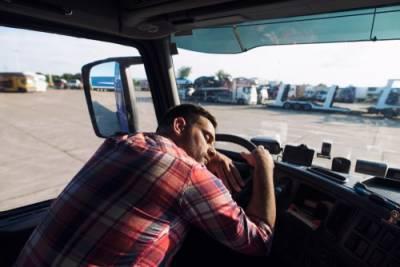 One of the most common causes of truck accidents in the U.S. is fatigued truck drivers. Truckers are often expected to drive hundreds of miles a day and deal with a wildly inconsistent sleep schedule. Chronic sleep deprivation can have significant effects on a person’s ability to drive safely. Sleepiness can cause reduced reaction time, decreased awareness, and difficulty paying attention. It is estimated that being fatigued makes you three times more likely to be involved in a car accident. In fact, The National Safety Council states that driving 20 hours without sleeping is comparable to driving with a blood alcohol concentration of 0.08 percent. However, increased demand caused by the COVID-19 pandemic has prompted the FMCSA to modify the rules regulating truck driver hours of service.
One of the most common causes of truck accidents in the U.S. is fatigued truck drivers. Truckers are often expected to drive hundreds of miles a day and deal with a wildly inconsistent sleep schedule. Chronic sleep deprivation can have significant effects on a person’s ability to drive safely. Sleepiness can cause reduced reaction time, decreased awareness, and difficulty paying attention. It is estimated that being fatigued makes you three times more likely to be involved in a car accident. In fact, The National Safety Council states that driving 20 hours without sleeping is comparable to driving with a blood alcohol concentration of 0.08 percent. However, increased demand caused by the COVID-19 pandemic has prompted the FMCSA to modify the rules regulating truck driver hours of service.
Updates to Federal Motor Carrier Safety Administration Hours of Service
What Is Needed for a Successful Slip and Fall Injury Claim?
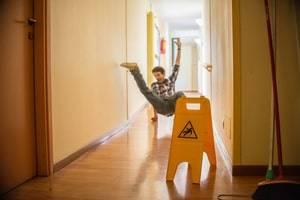 A slip and fall accident or trip and fall accident can cause painful injuries that require considerable medical treatment. Head injuries including traumatic brain injuries, back and spine injuries, broken bones, and other injuries caused in a fall may result in thousands of dollars of medical expenses and lost income. If you or a loved one were hurt in a fall accident caused by the negligent actions of a property owner or occupier, you may be interested in pursuing compensation through a premises liability claim. To successfully obtain compensation, you and your attorney will need to prove several facts.
A slip and fall accident or trip and fall accident can cause painful injuries that require considerable medical treatment. Head injuries including traumatic brain injuries, back and spine injuries, broken bones, and other injuries caused in a fall may result in thousands of dollars of medical expenses and lost income. If you or a loved one were hurt in a fall accident caused by the negligent actions of a property owner or occupier, you may be interested in pursuing compensation through a premises liability claim. To successfully obtain compensation, you and your attorney will need to prove several facts.
Establishing The Defendant’s Negligence
The party who brings an injury claim is the plaintiff or claimant, and the party who the claim is brought against is the defendant. The defendant in a slip and fall case may be the property owner or the party who managed or occupied the property on which the injury occurred. Most slip and fall injury claims are based on the assertion that the defendant did not keep the property reasonably safe for individuals who were lawfully on the property. Spilled liquids, fractured concrete, broken stairs, and faulty handrails are all examples of hazards that may lead to a slip and fall accident.
How Are Expert Witnesses Used in an Illinois Car Accident Injury Claim?
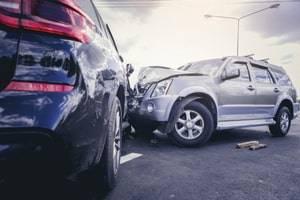 Car accidents are often caused by a complex combination of numerous factors. Drunk driving, distracted driving, poor road conditions, weather, and countless other issues may all contribute to serious auto accidents. If you or your loved one were injured in a car accident, you may be interested in bringing a personal injury claim against the liable party or parties and seeking compensation. However, in order to be successful, you will need to prove that the responsible party’s negligent or wrongful actions caused the accident and that you suffered damages as a result. In complex or multifaceted car accident cases, testimony from expert witnesses can be especially useful.
Car accidents are often caused by a complex combination of numerous factors. Drunk driving, distracted driving, poor road conditions, weather, and countless other issues may all contribute to serious auto accidents. If you or your loved one were injured in a car accident, you may be interested in bringing a personal injury claim against the liable party or parties and seeking compensation. However, in order to be successful, you will need to prove that the responsible party’s negligent or wrongful actions caused the accident and that you suffered damages as a result. In complex or multifaceted car accident cases, testimony from expert witnesses can be especially useful.
Establishing the Elements of a Negligence Claim
To win your car accident claim, you and your attorneys will need to establish four main points. First, you must show that the defendant, meaning the person against whom you are bringing the lawsuit, owed you a “duty of care.” All drivers owe a duty of care to drive in a safe, lawful manner. Secondly, you must show that the defendant breached this duty. The defendant may have neglected their duty of care by driving under the influence of alcohol or drugs, making erratic lane changes, failing to adequately secure truck cargo, or otherwise acting negligently. Next, you must demonstrate “causation” and show that the defendant’s breach of duty caused your injuries. Lastly, you must show that you suffered damages, or financial losses, as a result of your injuries.








